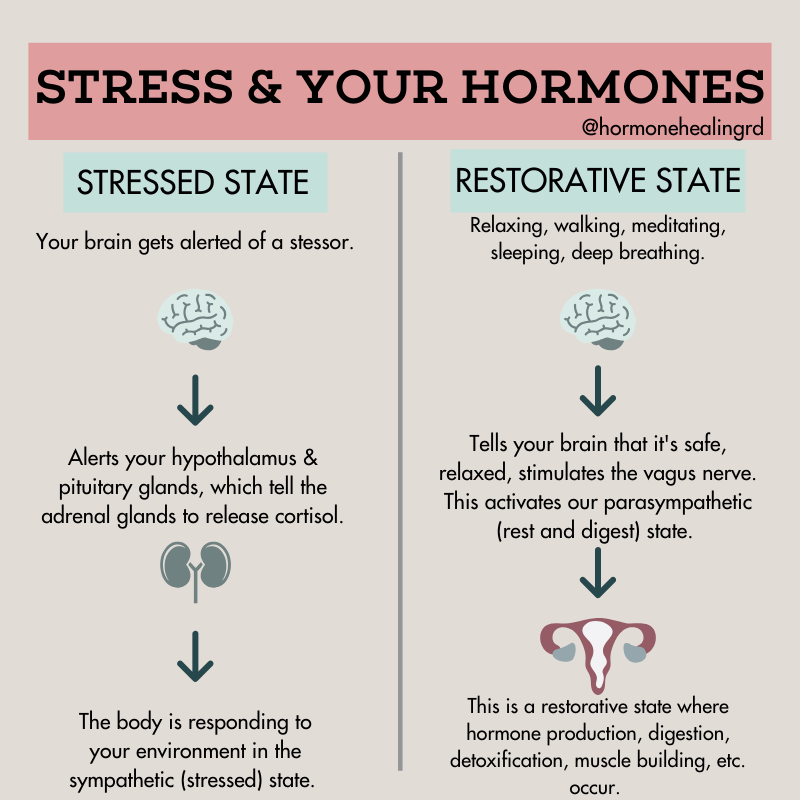The connection between stress and your hormones is no secret, but the effects of stress on the management of polycystic ovarian syndrome are something that we don’t talk about nearly as much as we should. I’ve found, though, that reducing stress is essential for long term management of symptoms related to polycystic ovarian syndrome and the treatment of polycystic ovary syndrome.
How they’re connected
You may have heard the term ‘fight or flight’, but there is a lot of physiology that goes into understanding this concept around stress and our body systems. As I’m sure you know, ‘fight or flight’ describes a reaction to stress that’s often associated with animals who find themselves in danger. When introduced to a stressor – for example, a predator chasing them through the jungle – an animal can have a ‘fight or flight’ reaction that drives their body to either stay and defend themselves (fight) or run and hide for protection (flight).
The same concept goes for people. At its very basic level, the ‘fight or flight’ response in humans is the same – it tells us how we should react to different stressful situations we experience. Thousands of years ago, this response kept us safe, just as it does for animals, by helping us recognize danger in our environments. As our environments have changed, so have our stressors – moving away from immediate danger from animals and predators and shifting to perceived danger related to social stressors and job pressure.
Unfortunately, though, our bodies still react the same to these new stressors. Our fight or flight response still exists, and it is often confused by the new stressors of our environment. This can cause us to live in a constant state of stress, with our body perceiving the need ‘fight’ or ‘flight’, even if we’re not in danger.
The commonality between all of our stress responses is that different aspects of our biochemical systems are altered when we’re stressed, including our hormone production. When our bodies are stressed, they’re not prioritizing hormone production – in fact, it’s turned off! We produce hormones, build muscle, digest our food, detox, and restore balance in the body when we are in a relaxed state, and when our bodies are stressed, these productions don’t happen.
Hormones aren’t only affected during stressful times during a lack of production. When our bodies are stressed, we release the hormone cortisol. When cortisol is released, we also release glucose from our liver, causing an insulin response that can be detrimental to those with insulin resistance, such as women with polycystic ovarian syndrome (PCOS). If you’ve been keeping up with my posts, you know that one of the driving factors of symptoms in most cases of PCOS is insulin resistance. Chronic stress, or our body’s inability to distinguish if we need to ‘fight’, ‘flight’, or relax, can contribute to that.
So what does this mean?
Stress reduction isn’t something that should only be prioritized by people with PCOS. We all need to prioritize our stress management and actively work on reducing stressors, but it can especially benefit women with PCOS.
Here are my top five ways to reduce stress, especially in my clients with PCOS.

There is no one right way
There is no one right way to manage your stress. Each person has their own stressors related to their personal life or job, so managing your stress may look different. However, prioritizing your stress management, especially if you are someone dealing with polycystic ovarian syndrome (PCOS), can be important in managing your overall health.
Photo by Radu Florin on Unsplash
